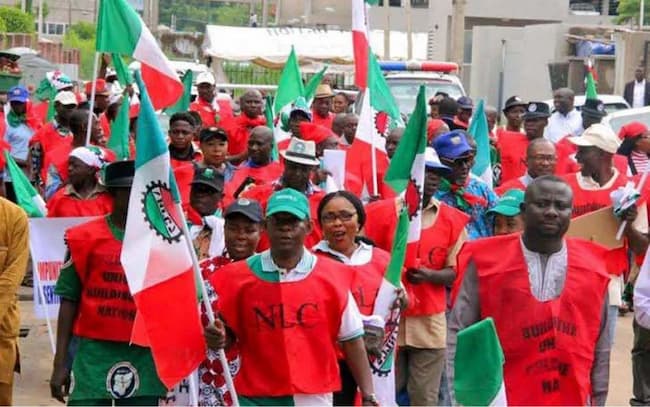The Nigeria Labour Congress (NLC) has issued a December 1, 2024, deadline for all state governments to implement the newly approved minimum wage. Additionally, the NLC has accused fuel marketers of price gouging, asserting that current petrol prices are much higher than actual market values.
According to the NLC, Nigerians are being exploited and pushed deeper into hardship due to government policies that exacerbate poverty and economic strain.
In a communique released on Sunday after its National Executive Council (NEC) meeting, the NLC emphasized the severe economic challenges facing the country and demanded an urgent overhaul of what it called “anti-people” policies.
The NLC also instructed its state councils to prepare for an indefinite strike from December 1, 2024, in states where the minimum wage remains unimplemented.
President Bola Tinubu approved an increase in the national minimum wage from N30,000 to N70,000 in July 2024. However, implementation has been uneven, with some states yet to adopt the new standard.
While many states have agreed to pay the N70,000 minimum wage, some have pledged even higher amounts. By early November, more than 20 states had confirmed adoption of the new wage structure.
The NLC announced plans to form a National Minimum Wage Implementation Committee to assess and mobilize nationwide efforts, educating workers and citizens on the importance of upholding fair wage standards.
“Furthermore,” the NLC’s communique stated, “all non-compliant states will face industrial actions, and state councils where the minimum wage remains unimplemented by the end of November 2024 are directed to commence strike actions on December 1, 2024. Nigerian workers demand justice, and they shall have it.”
The communique underscores the NLC’s concerns over the economic hardship faced by Nigerians and its commitment to ensuring accountability from both fuel marketers and the government.
The NEC expressed deep frustration over alleged manipulation of petrol pricing, noting that the current pump price is likely inflated beyond the real market rate.
“The padding of costs and excessive profit margins appears prevalent, as evidenced by the ongoing issues between fuel marketers and the Dangote Group,” the NLC said. “It’s plausible that Nigerian workers and citizens are being exploited by influential players in the industry, which may explain delays in reviving public refineries.”
The NLC called for fair petrol pricing and urged the swift reactivation of the public refineries in Port Harcourt, Warri, and Kaduna.













